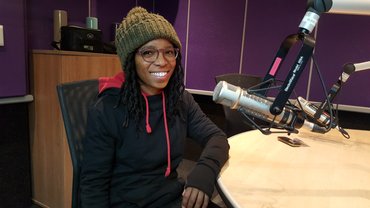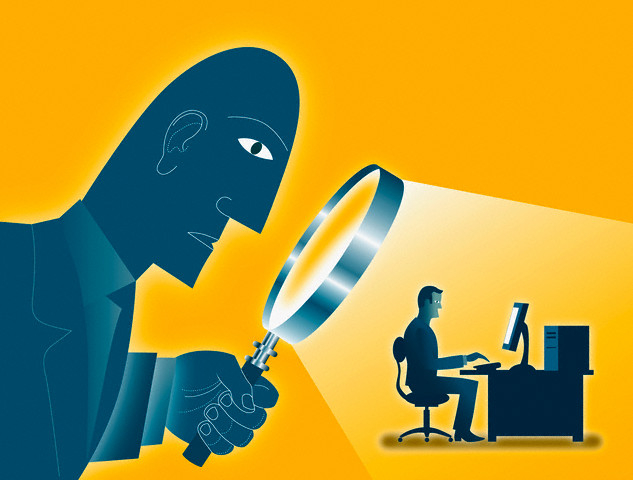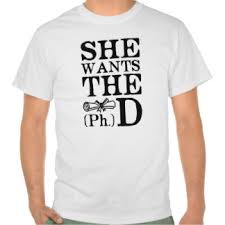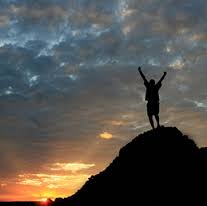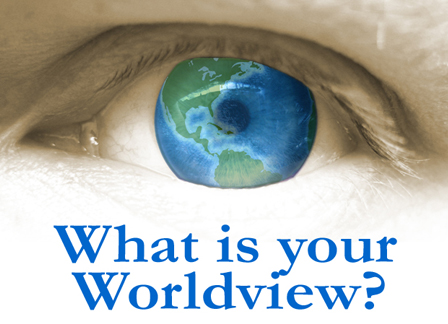Construct a two-sided persuasive argument on the role of satire and/or parody – as a form of political communication – that may or may not serve to strengthen the emerging South African democracy. Make use of any of the relevant theories as discussed in class to analyse how any South African example of satire and/or parody may or may not contribute to the strengthening of this emerging democracy.
ABSTRACT
South Africa is in its advent of democracy, with only 21 years since the fall of the apartheid regime. It can be argued that South Africa is still a young fragile democracy. However, South Africa, through its constitution has advocated for a society with values and one aiming for change and accountability. The Constitution of the Republic of South Africa has therefore enabled multiply liberties which its citizens should enjoy. This essay is about a two-sided persuasive argument on the role of satire and or parody as a form of communication that may or may not serve to strengthen the emerging South African democracy. This essay argues that freedom of expression brings forth the role of satire as strengthening democracy. However, on the other hand, this essay argues that conflicting rights can lead to the infringement of the freedom of express and to a greater extent, may overweigh other rights. Therefore, this may not serve to strengthen the emerging democracy.
- INTRODUCTION
The relationship of comedy to political power has created the question of who gets to laugh publicly at whom and these remains as close today (Hall, 2015: 12). The right to question through comedy, or rather satire or parody, every idea and person in position of power is purely a lynchpin of democracy (Hall, 2015: 17). There are many countries in the world where political theatre or satire/ parody are not tolerated (Hall, 2015) and those in which it is endured. Accepting or not accepting the practice of satire and parody is due to conflicting liberties or rights, which are to a certain extent, overweighing other basic important freedoms. South African has undergone a regime of subjugation, where media operated under the vested power (Fourie, 2007). That is, the media are seen as a mouth piece of the ruling party. During the pre-apartheid era, South Africa was what seemed to be a dictatorial state, curbing liberties to the benefit and favour of state to control over the general civilians. The advent of the post-apartheid regime has opened new channels of constitutional liberties embracing a society of values which can assist the advancement of human rights and freedoms and to ensure accountability (Constitution of South Africa, 1996).
In giving a comparative analysis of the roles of satire and parody in a democracy, the first section of this essay intends on defining the core concepts with which this essay confines itself to. Core concepts to be defined are satire and democracy. In the second section of the essay, a two-sided persuasive argument will be constructed on the role of satire and or parody- as a form of political communication. That is, to argue for and against the role of satire or parody as either serving in strengthening the emerging South African democracy or not. This essays argues that freedom of expression may assist strengthen South Africa’s democracy. However, within the freedom of expression enshrined in the constitution, characteristics such as participation, social change, education and social commentary are outlined as elements playing a vital role in satirical work to help shape democracy. These characteristics are enabled by section 16 (Freedom of Expression) itself and therefore, make room for satire to play a significant role in society. On the other hand, this essay argues that rights in the constitution have limitations. Therefore, the freedom of expression has limitations too, which are in its subsection 2. Subsection 2 of the freedom of expression protects the freedom given under Section 16, in protecting citizens and to a larger extent, to protect other rights. It is therefore argued that less restriction to the freedom of expression can led to the infringement of other rights and this, may not serve to strengthen the democracy. This is mainly because rights may conflict each other therefore, outweighing other important freedoms in society.
This essay will argue with reference to the Constitution of the Republic of South Africa as a framework to help comprehend arguments advocated in this essay. Arguments will be also given under a backdrop of an understanding what democracy is, the role of media in a democracy and its limitations as a way to outline ways in which satire and parody may not serve to contribute to strengthening democracy. To help analyse arguments given here, examples to be used include the recent satirical work by Ayanda Mabulu of President Jacob Zuma title: The Pornography of Power including similar 2012 debate stirring paint by Brett Murray titled: The Spear and the Late Nite News (LNN) with comedian host, Loyiso Gola on e.tv or e-NCA and the work of Mail and Guardian’s cartoonist, Shapiro on current matters.
- DEFINING CORE CONCEPTS
This section of this essay defines core concepts utilised in this essay. Terms defined in this essay are satire/parody and democracy. This section aims to explain these terms to assist with develop a clear argument in this essay. This essay will first explain what satire/parody is as a point of departure and secondly explain what democracy means. These definitions aims to assist in sustaining persuasive arguments regarding how satire in the South African context may or may not be detrimental or strengthen the emerging democracy.
There are various definitions of satire and parody in various literatures. Satire can be defined as the literature art of diminishing or derogating a subject by making it ridiculous and drawing toward it attitudes of amusement, while parody is meant to for mocking and may not incite society (Harris, 2005:1). Satire is defined as the use of humour, irony, exaggeration or ridicule, to expose and criticise people’s absurdity or voices (Dalton, 2010: 1). According to Dalton (2010), parody on the other hand can be defined as an imitation of the style of a particular writer, artist, or genre with deliberate exaggeration for comic effect. Parody represents a cultural practice which is strongly critical imitation of another cultural phenomenon. According to Elliott satire is a way of expression disapproval of certain perceived flaws and short comings by using literature devices such as mockery. Griffin (1994) argues that satire seeks to expose something foolish and immoral. Griffin (1994), further states that satire distinguishes itself from pure comedy by distorting elements, peculiar people, found in the real world.
This essay intends highlighting that satire plays a pivotal role in strengthening democracy. This essay aims to argue that satire also has characteristics which may not strengthen democracy. The use of satire and parody in political contexts is useful as it showcases politicians’ deficiencies through the use of humour. In a democratic dispensation such as South Africa, and where there is a privilege of the right to expression, comedians are given the platform to inform the audiences about their political leaders using humour. It is the means to the end (Becker & Raveloson, 2008: 4).
The term democracy is a word familiar to most people and generally used a lot. But, its definition is often misunderstood and misused. According to Hall (2015: 12), defines the word democracy as a form of sovereign power (kratos) held by the free populace (the demos) in a particular society. The word democracy derives from the Greek word demos, or people, is defined, basically, as government in which the supreme power is vested in the people (Hall, 2015). In some forms, democracy can be exercised directly by the people; in large societies, it is by the people through their elected agents (Hall, 2015). Or, in the memorable phrase of President Abraham Lincoln, democracy is government of the people, by the people, and for the people. Freedom and democracy are often used interchangeably, but the two are not synonymous (Becker & Raveloson, 2008). Democracy is indeed a set of ideas and principles about freedom, but it also consists of practices and procedures that have been moulded through as it is been practised (Schmitter & Karl, 1991; Campbell, 2008). In its emblematic form, democracy means the institutionalization of freedom.
- THE ROLE OF SATIRE THAT MAY SERVE TO STRENGTHEN DEMOCRACY
3.1. Freedom of expression (Section 16)
The freedom of expression carries its own inherent worth which has been bestowed by the previous government, and serves as collection if other constitutional ends in an open and democratic society. Therefore, if freedom of expression was a response to the ills of the previous government, restricting it would mean implying a paradox of a democracy which regresses to oppression. According to the Freedom of Expression Institute (2013: 10), freedom of expression can be defined as relating “to the liberty to be able to hold opinions and to impart and or receive these as well as ideas and information to others in any form”.
Parody and satire contribute to accountability in the emerging state of a democracy, including the significance of the freedom of expression as a requisite ideal in post-apartheid South Africa. With reference to the Constitution of South Africa by advocating that freedom of expression should be evident in political discourse. A democratic dispensation is associated with liberties that citizens can enjoy in their country. The South African constitution has given citizens multiply freedoms embedded as a form of Bill of rights and sections. These liberties are embedded in the constitution are a cornerstone of a democracy and affirms the democratic values (Republic of South African constitution, 1996).
The right of expression is a fundamental constitutional right citizen within a democratic state. The act to voice ones view in a society is the right of all citizens and a democratic society. According to Langer, 2011: 33), freedom of thought, views and speech are the most important duties of every person in a democracy. Freedom of expression is a right enabled and embedded in the constitution in South Africa. It is significant that satire and parody are acts of expression that are vital in political development. However, the right to freedom of expression is element of the role of satire that may strengthen democracy.
Section 16 of the Constitution of the South African states:
Everyone has the right to freedom of expression which includes-
- a) Freedom of the press and other media
- b) Freedom to receive or impart information or ideas
- c) Freedom of artistic creativity; and academic freedom and,
- d) Freedom of scientific research (Republic of the South African Constitution, 1996).
This right enshrined in the constitution, seen as a basic human right, allowing people in a country to act as rational beings who can reasons and make choices and can distinguish between good and bad, evil and good (Fourie, 2007). Freedom of expression may strengthen the South African emerging democracy by enabling social commentary, to promote participation and educate masses in favour of political communication.
Social commentary
According to Worington (2013: 1), freedom of speech is considered one of the most sacred of rights in countries that champion the ideals of democracy, equality and human freedoms. Within the liberty of expressing oneself, satire and parody stimulate and create a platform where citizens at grassroots level caucus on topical matters that may have been shed through satiric work. This enables and invites views and opinions of citizens. However, this shapes political policies and highlights priorities with which citizens are calling the government to deliver. Through the creation of platforms of airing views enabled by the Constitution itself, it is important to note that this section permits social commentary. In order for an emerging democracy to be strengthened, it is essential that all who live in it find a voice on various issues.
Participation
A democracy is a country with at least a source of information (Morlino, 2009). This is directly seen in section 32 of the Constitution of South Africa, which highlights that everyone has a right to access to information (Republic of South Africa, 1996). This means that therefore means that it is paramount importance for the public to know what is going on in the country. This is often played through satirical work, bringing to the fore what is often the societal undressed matters. However, the freedom to receive or impart information through satirical work also creates participation at grassroots level, strengthening democracy. Participation in emerging democratic dispensation is vital in that it shows those in power of the demands and basic needs that citizens are bringing to their attention. It may be through voting for a political organisation, having your say through commentary platforms, making choices beneficial to the development of a democracy is also another element that may strengthen it.
Social change
In a broad term, satire and parody may through freedom of expression strengthen the emerging democracy by been a strong force to highlight social change. This is so due to the fact that satire and parody are communicated in the media, with a potential of reaching masses and making impacts. Through different media platforms, satire and parody commentaries may be used to highlight movements that are evident to impact matters that are facing young democracies that are evident in post-apartheid South Africa. The voice that is been permitted by the bills of rights can allow the drive to social change. The more citizens air their views and more seldom heard and sometimes never attended to matters are to be heard. Therefore would be vital in the South African dispensation, creating a social space of change from tumultuous history of South Africa.
Educating masses
Freedom of expression also has an educational element in it. Through the freedom allowing satirists to express them influences a community which probes on issues communicated through their work. However, satire and parody sparks curiosity in citizens therefore creating the need to know what is happening locally. To a larger extent, satire and parody delivered on various media platforms informs citizens on what is newsworthy. Although this is done in humorous ways, satire largely educates viewers. Through its educational element enabled by section 16 of the constitution, this may help strengthen democracy. According to Brewer & Marquardt (2007: 249), satirical shows have the potential to educate viewers about politics (including policy issues), draw their attention to events in world affairs, and encourage them to think critically or perhaps cynically. For instance, in South Africa a satirical show called The Late Nite Show (LNN) presented by comedian Loyiso Gola on channel e.tv or eNCA plays a role of educating citizens about issues happening around them but with the use of humour. However, education in a democracy is vital to assist citizens to make decisions that are binding in the country.
- THE ROLE OF SATIRE THAT MAY NOT SERVE TO STRENGTHEN DEMOCRACY
4.1. Infringing other Constitutional rights
In conjunction to the perks of liberties in a democratic dispensation, it can be argued that limitations of rights in the constitution are stipulated by highlighting subsections on what would actually put democracy at stake or even harm it. Roles of satire and parody that may not serve to strengthen democracy are outweighed by the roles that serve to support democracy. With the use of the Constitution of South Africa, as a framework, it highlights limitations to rights enshrined in it. According to the constitution (1999), rights may be limited only in terms of law of general application to the extent that the limitation is reasonable and justifiable in an open and democratic society based on human dignity, equality and freedom, taking into account all relevant factors such as the nature of the right, the significance of the purpose of the limitation, the nature and extent of the limitation, and less restrictive means to achieve the purpose (Constitution of South Africa, 1999: 1261).
This means that rights embedded for our consideration and enjoyment do have measure that limit them. For example, under the Bill of Rights, sub-section 1 often highlights a section of the right that vitally put up to assist in shaping democracy. Therefore, sub-section 2 of the rights often curbs what may seem harmful to citizens by stipulating limitations. Thus, except as provided in subsection (1) or in any other provision of the Constitution, no law may limit any right entrenched in the Bill of Rights (Constitution of South Africa, 1999).
In terms of Section 16, which is the right to freedom of expression mentioned herewith to argue that satire and parody serve to strengthen democracy through the freedom of expression. However, it must be borne in minds that subsection 2 of freedom of expression states its limitation, protecting citizens from possible other harms.
Subsection 2 of the freedom of expression outlines that:
(2) The right in subsection (1) does not extend to-
- a) Propaganda for war;
- b) Incitement of imminent violence; or
- c) Advocacy of hatred that is based on race, ethnicity, gender or religion, and that constitutes incitement to cause harm (Constitution of South Africa, 1999: 1249).
It could be argued that the use of the freedom of expression without caution may lead to the infringement of other rights. It may stand against rights such as the right to human dignity, cultural, religious and linguistic communities, including freedoms of belief and opinion.
The role of satire may not strengthen democracy if and to a greater extent other freedoms are oppressed or infringed. To a larger extent, satire and parody may not strengthen the emerging South African democracy by infringing other constitutional freedoms.
To mention but a few, freedom of expression collides with freedoms such as the right to dignity. The right to dignity, which in is Section 10 of the constitution has been argued as one of the freedoms with which satire and parody have potential damaged in cases of court appeals in South Africa. For instance, the recent satirical panting by Ayanda Mabulu titled The Pornography of Power (News24, 2015) is yet another satirical painting depicting President Jacob Zuma in the nude. This painting has debated matters of the infringement of privacy and to a greater extent, the harm to the president’s dignity. This satirical artwork the only piece of work which has questioned the infringement of other rights argued against the freedom of expression. This satirical artwork is not the first to depict the president’s genitals as social commentary. Artist Brett Murray’s The Spear had paint thrown at it, and was the subject of an urgent court application by the African National Congress (ANC), which was outraged by it (Mail and Guardian, 2012, News24, 2015).
Within the same case study, not only did the right to human dignity be argued as an infringed freedom but freedom of privacy (Section 14 of the Constitution of South Africa) was debated as colliding and overriding the media’s right to expression. During a legal battle at the South African Gauteng High Court between largely the ANC and President Jacob Zuma particularly and artist Brett Murray was argued to have overweighed Zama’s freedom of privacy (Mail and Guardian, 2012). The ruling party and Zuma will seek an urgent interdict against the gallery and the paper, ordering the image to be removed from the exhibition and taken off the newspaper’s website, arguing that it violates the president’s right to privacy and dignity (Mail and Guardian, 2015).
Advocate Johan Gaum said the elements constituting defamation of character or libel are “clearly present”, but it would be “complex” for the court to decide if these laws were infringed upon. Advocate Norman Arendse said the case was “almost unprecedented” because it weighed sections of South African Constitution against one another.
- CONCLUSION
This essay argued for both the positive and negative role satire and parody may or may not serve in strengthening the emerging South African democracy. The democratic dispensation has enabled rights with which cartoonists or all citizen to practice artist creativity if they wish to do so. Democracy has also been to limit liberties it has made available for all to enjoy. This is due to monitoring the misuse of these rights by all means. This essay argues outline possible ways in which satire may serve to strengthen democracy through the use the Constitution of the Republic of South Africa’s section 16 (freedom of expression) underlying elements such as social commentary, educating masses, creating social change and participation which are vital for a democratic dispensation to grow. It is also argues in this essay that the infringement of other rights caused by satire or parody may not serve to reinforce democracy.
REFERENCE LIST
Bauer, N. (2012). Freedom vs. Dignity in art debate. Mail & Guardian. Available from: http://mg.co.za/article/2012-05-24-freedom-vs-dignity-in-art-debate
Becker, P & Raveloson, J.A. (2008). What is democracy? Friedrich Ebert Stiftung. University of Hamburg.
Becker, A.B. (2010). Political Satire: Young Persons’ Involvement in Politics. Loyola University Press.
Brewer, P.R. & Marquardt (2007). Mocks News and Democracy: Analysing The Daily Show. University of Wisconsin: Milwaukee.
Campbell, A.J. (1991). Self-regulation and the Media Federal Communications Law Journal, 51 (3): 711-722). Available from: http://www.repository.law.indiana.edu/cgi/viewcontent.cgi?article=1207&context=fclj
Campbell, D.F.J. (2008). The basic concept for the Democracy Ranking of the quality of democracy. Vienna: Democracy.
Dalton, M. (2010). Satire and Parody Defined. An Introduction to Humour Studies. Oxford University Press.
Evans, J. (2015). We are being molested: Artist behind naked Zuma painting. News24. Available from: http://www.news24.com/SouthAfrica/News/We-are-being-molested-Artist-behind-naked-Zuma-painting-20151013
Freedom of Expression Institute. (2013). Hate speech and freedom of expression in South Africa. Braamfontein: Freedom of Expression Institute.
Hall, E. (2015). The birth of comedy. History Today. London. Available from: http://0-web.a.ebscohost.com.ujlink.uj.ac.za/ehost/pdfviewer/pdfviewer?vid=3&sid=2e222d8d-951e-4456-9b5e-79b2ffc76ae2%40sessionmgr4005&hid=4201
Holbert, R.L. (2013). Developing a Normative Approach to Political Satire: An Empirical Perspective. International Journal of Communication 7 (2013), 305–323.
Harris, D. (2006). Satire and Parody. 8th Edition, Thompson WadsWorth.
Matheolane, M. (2012). Defacing race and culture: The Spear and politics of representation. Mail and Guardian. Available from: http://mg.co.za/article/2012-05-23-defacing-race-and-culture-the-spear-and-politics-of-representation
Republic of South Africa. (1996). Constitution of the Republic of South Africa. South Africa. Available from: file:///C:/Users/Student/Downloads/Constitution%20of%20the%20Republic%20of%20South%20Africa.pdf



